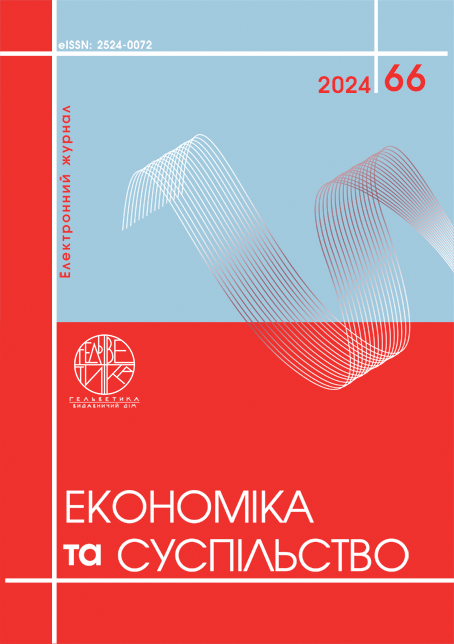РОЗРОБКА СТРАТЕГІЙ ЗАПОБІГАННЯ, ЗМЕНШЕННЯ ТА ПЕРЕРОЗПОДІЛУ ВІДХОДІВ У ЗАКЛАДАХ РЕСТОРАННОГО ГОСПОДАРСТВА
Анотація
В статті проведено дослідження, яке спрямоване на аналіз факторів, що сприяють марнотратству продуктів харчування в закладах ресторанного господарства, та розробку стратегій для зменшення відходів. За допомогою створення спеціальної «Карти харчових відходів у ресторанах» було ідентифіковано ключові причини виникнення відходів та запропоновано практичні рекомендації для їх усунення. Результати дослідження показали, що розмір ресторану, його спеціалізація та поведінка персоналу значно впливають на кількість харчових відходів. Було розраховано потенційні економічні збитки від марнотратства продуктів харчування в ресторанному секторі України та обґрунтовано необхідність впровадження безвідходних технологій. Розроблені в рамках дослідження стратегії можуть бути використані для розробки ефективних програм управління харчовими відходами в ресторанах та сприяти досягненню цілей сталого розвитку.
Посилання
Мазуркевич І.О., Постова В.В. Безвідходне виробництво як ключ до сталого розвитку ресторанного бізнесу в Україні. Наукові інновації та передові технології. 2024. № 9(37). С. 708–718.
Amicarelli V., Bux, C. Food waste in Italian households during the COVID-19 pandemic: A self-reporting approach. Food Security. 2021. Vol. 13, pp. 25–37.
Bhattacharya A., Fayezi, S. Ameliorating food loss and waste in the supply chain through multi-stakeholder collaboration. Industrial Marketing Management. 2021. Vol. 93, pp. 328–343.
De Visser-Amundson, A. A multi-stakeholder partnership to fight food waste in the hospitality industry: A contribution to the United Nations sustainable development goals 12 and 17. Journal of Sustainable Tourism. 2022. Vol. 30 (10), pp. 2448–2475.
Filimonau V. The prospects of waste management in the hospitality sector post COVID-19. Resources, Conservation and Recycling. 2021. Vol. 168, Article 105272.
Filimonau, V. et al. Food waste and its management in the foodservice sector of a developing economy: An exploratory and preliminary study of a sample of restaurants in Iraq. Tourism Management Perspectives. 2023. Vol. 45. Pp. 101048. DOI: https://doi.org/10.1016/j.tmp.2022.101048
Gładysz B., Buczacki A., Haskins C. Lean management approach to reduce waste in HoReCa food services. Resources, 2020. Vol. 9 (12), p. 144.
Mazurkevych I.O., Postova V.V. (2024). Bezvidkhodne vyrobnytstvo yak kliuch do staloho rozvytku restorannoho biznesu v Ukraini [Zero-waste production as a key to the sustainable development of the restaurant business in Ukraine]. Naukovi innovatsii ta peredovi tekhnolohii. Vol. 9(37), pp. 708–718.
Amicarelli, V., & Bux, C. (2021). Food waste in Italian households during the COVID-19 pandemic: A self-reporting approach. Food Security, 13, 25–37.
Bhattacharya, A., & Fayezi, S. (2021). Ameliorating food loss and waste in the supply chain through multi-stakeholder collaboration. Industrial Marketing Management, 93, 328–343.
De Visser-Amundson, A. (2022). A multi-stakeholder partnership to fight food waste in the hospitality industry: A contribution to the United Nations sustainable development goals 12 and 17. Journal of Sustainable Tourism, 30(10), 2448–2475.
Filimonau, V. (2021). The prospects of waste management in the hospitality sector post COVID-19. Resources, Conservation and Recycling, 168, Article 105272.
Filimonau, V. et al. (2023). Food waste and its management in the foodservice sector of a developing economy: An exploratory and preliminary study of a sample of restaurants in Iraq. Tourism Management Perspectives. Vol. 45. P. 101048. DOI: https://doi.org/10.1016/j.tmp.2022.101048
Gładysz, B., Buczacki, A., & Haskins, C. (2020). Lean management approach to reduce waste in HoReCa food services. Resources, 9 (12), 144.

Ця робота ліцензується відповідно до Creative Commons Attribution 4.0 International License.


